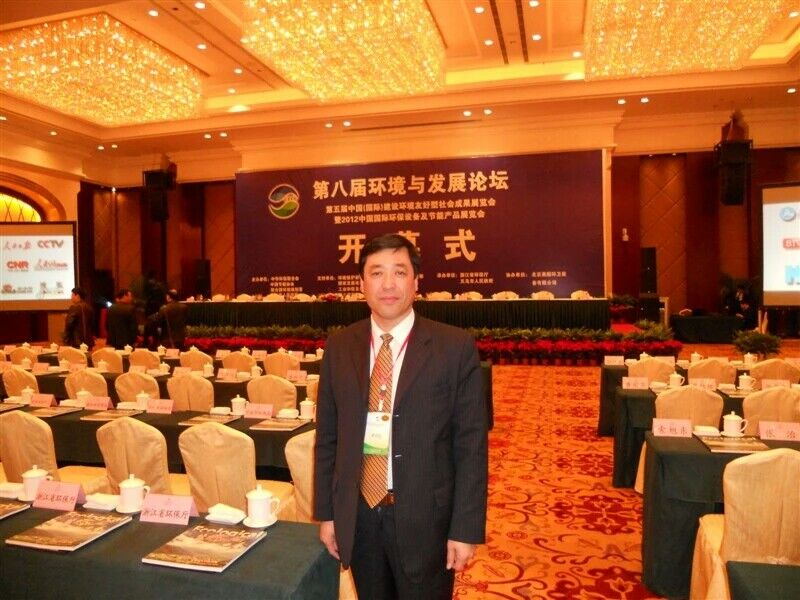2009年4月24日,长沙市中级人民法院对“MICHELIN”等注册商标的所有者法国米其林集团诉销售“MICHELIN”轮胎的个体工商户谈国强和欧灿商标侵权案做出一审判决,认定被告销售由原告在日本的子公司生产的面对巴西市场的,且没有进行3C认证(1)的“MICHELIN”轮胎的行为侵犯了原告的注册商标专用权。
法院的判决看上去似乎让人难以理解,因为被告销售的是原告自己的工厂生产的产品,并非未经其授权生产的假冒产品此案涉及了一个国际贸易中常见的问题,即商标商品平行进口。关于商标商品的平行进口,指的是未经商标权利人或者独占许可使用人的授权或许可,向商标权人或独占被许可人拥有商标权益的国家或地区出口由商标权人自己所在国家或地区生产的商标商品或经其同意在其他国家或地区生产的商标商品。平行进口产生的根本原因在于对利益的追求。由于商标权人其商品在不同国家和地区的生产成本不同,或根据当地的消费水平,会导致在不同的国家和地区市场售价不同。平行进口商在除去相关成本,将在某一国生产和销售的商品进口到另一国后,其售价往往比进口国商标商品的市场售价要低而使得消费者更愿意购买平行进口商品。
在我国相关商标法律法规中没有关于销售平行进口的商品是否构成商标侵权行为的规定。在法律界,关于平行进口是否侵犯他人注册商标专用权存在两种不同的意见。多数学者依据权利用尽的原则,对平行进口中是否存在商标侵权持否定意见。但也有依据知识产权的地域性特点而认为销售平行进口商品侵犯了商标权人的权利。
在本案中,法院认为,认定商标侵权的构成取决于被告销售前述“MICHELIN”轮胎的行为是否对原告的注册商标专用权权益造成损害。轮胎产品的生产和销售应当符合销售地关于速度的要求,销售地的地理条件和气候特征以及相关强制认证标准,而未经3C认证的并非面对中国市场的“MICHELIN”轮胎在中国使用可能存在安全隐患。如果由于使用这种未经安全认证的导致交通事故或其他民事纠纷,由此所产生的法律后果以及使用者对产品的负面评价会通过轮胎上的商标直接指向商标权人的原告。因此,被告的行为破坏了原告商标保证商品质量和商品提供者信誉的作用,对原告的注册商标专用权造成了实质性损害。
法院对本案的判决表明,无论是权利用尽原则还是地域性原则,均不能直接认定平行进口商标商品是否存在商标侵权的问题。确认是否构成商标侵权行为,应考虑商标权人的商标权益是否收到损害。在本案中,法院认定原告商标权益受到损害的前提是被告销售了原告的并非面向中国市场的,且未经过3C认证的产品。其依据是轮胎产品必须经过3C认证后才能销售,未经3C认证则意味着使用安全不能得到保证。因此,原告通过商标体现出的信誉可能会受到损害。换句话说,本案的关键点之一是可以说明或者证明是否存在商品安全性问题的“3C认证”。
那么,平行进口不需要进行3C认证的商标商品,是否也会构成商标侵权行为?根据法院确认是否构成商标侵权行为,应考虑商标权人的商标权益是否收到损害的观点,3C认证应只是用于证明使用平行进口商品可能存在安全隐患的比较有力的证据之一。因此,在平行进口商品,无论是否需要进行3C认证,只要在因其非面向中国市场而可能产生安全隐患从而会损害商标权人的信誉的情况下,进口和销售这些商品应认定构成商标侵权行为。也就是说,即便是不需要3C认证的平行进口商品,如果有证据证明在中国使用可能存在安全隐患,进口和销售这种平行进口商品存在构成商标侵权的可能性。例如不需要进行3C认证的,但可能不符合相关国家标准的商品,或者有证据证明可能在使用中存在安全问题的商品。
另一种情况是,如果被告在销售前进行了3C认证,其销售该平行进口轮胎产品是否构成商标侵权呢?根据法院的观点进行推导,答案显然是否定的 – 进行了3C认证的轮胎产品证明其在中国使用不存在安全问题,因此原告通过商标体现出的信誉应不会受到损害。当然,商标权人可能会因平行进口商品挤占了商标权人在进口国的市场份额而遭受利润损失。例如,商标权人的商标商品在A国的售价为100元,在B国则为80元,利润均为30元。平行进口商将在B国销售的商品进口到A国后,售价90元。如此,商标权人的商标商品的利润少了10元。但实践中,出于保护消费者利益的考虑,一般不会因商标权人因平行进口商标商品遭受利润损失而认定构成商标侵权。
法院在审理本案中在对平行进口商标商品是否构成商标侵权的问题上做出了有益的尝试,其关于确认商标侵权行为应考虑商标权人的商标权益是否收到损害的观点对涉及平行进口商标商品的案件,甚至是通常意义的商标侵权案件,在商标侵权构成的认定上具有积极的借鉴意义。对于受平行进口问题困扰的商标权人,或有可能采取措施制止平行进口其商标商品的行为,在能够证明使用平行进口商品可能存在安全问题的情况下。而对于平行进口商而言,更应在获得利益的同时,确保不会使消费者的利益受到损害。
注释:
(1) 3C认证,中国强制性产品认证制度。轮胎产品列于《第一批实施强制性产品认证的产品目录》中。
Trademark Infringement in Parallel Importation
On April 24, 2009, Changsha Intermediate People's Court (the "Court") made the first instance judgment in Michelin Group vs. Tan Guoqiang and Ou Can. The Court ruled that the Defendants, tire dealers Tan Guoqiang and Ou Can, infringed upon the Plaintiff's exclusive right to use the registered trademark, "MICHELIN & Device," by selling imported Japanese-made tires (targeting the Brazilian market) without consent from the trademark owner and without obtaining a Chinese Compulsory Product Certification ("3C Certification").(1)
Some questioned the Court's decision as the tires sold by the Defendants were in fact manufactured by the Michelin's own factory and were not counterfeits. The case concerns about parallel importation of trademarked products, a common occurrence in international trade. Parallel importation of trademarked products refers to branded goods, manufactured and sold in the country or area where the trademark owner is located or where the trademark products are authorized to be manufactured and sold. The trademarked products are imported into the countries or areas, where the trademark owner or the exclusive licensee enjoys the trademark and related rights without the authorization of the trademark owner and/or the exclusive licensee. Parallel importation is often motivated by extra benefits. Since manufacturing cost and consumer capability vary in different countries and areas, the trademark owner always sets different prices for their products in different markets. Parallel importers purchase products in one country at a price (P1) which is lower than the price at which they are sold in a second country (P2), and import the products into the second country. Consumers are inclined to buy the imported product in the second country at a price which is lower than P2.
Whether parallel importing of trademarked products constitutes trademark infringement is not specifically addressed in the PRC laws and regulations. There are two prevailing opinions regarding parallel importing in the academic field. Most scholars disagree that parallel imports constitute trademark infringement based on the "Exhaustion of Rights Doctrine," while some believe that trademark infringement shall be established in parallel import based on the locality nature of intellectual property rights ("IPR").
In this case, the Court focused on whether the Defendants' sale of imported MICHELIN tires shall constitute trademark infringement upon the Plaintiff's exclusive right to use the registered trademark "MICHELIN & Device." As the manufacture and sale of tire products shall be in compliance with the relevant speed requirements, geographical and climatic features, the Court held that the Defendants' failure to obtain the 3C Certification for MICHELIN tires which were originally targeting the Brazilian market may raise quality and safety issues. It was foreseeable that consumers would attribute traffic accidents or any other civil disputes to the Michelin Group as the manufacturer. Consequently, the standard of quality denoted by the Michelin trademark and plaintiff's reputation as a leading tire manufacturer would be damaged. Therefore, the Court concluded the Defendants' acts had caused substantial damages to the Plaintiff's exclusive rights to use the trademark "MICHELIN & Device".
The Court's judgment shows that the Exhaustion of Rights Doctrine or the Territoriality Principle alone is insufficient to justify the act of parallel imports. When affirming the trademark infringement, the Court should also consider whether the interests and rights of the trademark owner have been damaged. In this case, the grounds on which the Court established trademark infringement were that the tires had not obtained 3C Certification, and the tires were not manufactured for the Chinese market. According to the Court, tire products should be certified under the 3C system before they are sold in China. Otherwise the quality and safety of the products could not be ensured. Therefore, the Plaintiff's reputation as a leading tire manufacturer trademarked as "MICHELIN & Device" would be damaged. In short, the key issue of this case is the "3C Certification," which represents or proves the quality and safety of the tire products sold in China.
One subsequent issue is whether importation and selling of trademarked products not subject to 3C Certification may cause trademark infringement. According to the Court's ruling, when affirming trademark infringement in parallel importation, the key issue is whether the import and sales activities have damaged the interests and rights of trademark owners. If an imported product is without 3C Certification, it merely indicates that the parallel imported products might have potential quality and safety problems. However, the absence of 3C Certification does not necessarily establish the problems. Therefore, a trademark infringement should be established if the imports and sales of the products that are not targeting the Chinese market would damage the reputation of the trademark owner, even if the parallel imported products are not subject to the 3C Certification. In other words, although the imported products are not subject to 3C Certification, the imports and sales of the products may also constitute trademark infringement conditioned that potential quality problems and safety risks exist within the imported products to be used in China. For example, the said products may not require a 3C Certification, but they are incompliance with other national standards or have potential safety risks in use.
On the contrary, would the import and sales activities constitute trademark infringement if the Defendants had applied for 3C Certification before selling the MICHELIN tires? The answer is no according to the Court's ruling. The MICHELIN tires with 3C Certification means that they are free of quality and safety problems and, therefore, the reputation of the Plaintiff would not be damaged. The trademark owner may inevitably make less profit because of the competition of the parallel imported products in the local market. For example, the price of the trademarked products is RMB 100 in country A and RMB 80 in country B, and the profit is RMB 30 in both country A and B. Parallel importer imports the products that are sold in country B to country A and offer the price at RMB 90. As such, the trademark owner may suffer a profit loss of RMB 10 in country A. In practice, the parallel importing of the trademarked products does not necessarily constitute trademark infringement simply because the trademark owner suffers profit loss.
In Michelin, the Court demonstrated the progress of trademark infringement trials of parallel imported products into China. The ruling of the case set guidance over the issue of whether the imports and sales of parallel trademarked products constitute trademark infringement. The key focus of the issue is whether the alleged acts are detrimental to the interests and rights of the trademark owner. To trademark owners that are harassed by parallel imports, it is possible to take measures to stop others from parallel importing of their trademarked products, if they can prove the products have quality and safety problems in use. For parallel importers, they should ensure that consumers' interests would not be damaged while deriving profits.
Notes:
(1) "3C" is regulated under the Mandatory Certificating system in China. Tire products are included in the "Catalog for First Batch of Products subject to Mandatory Product Certification".










